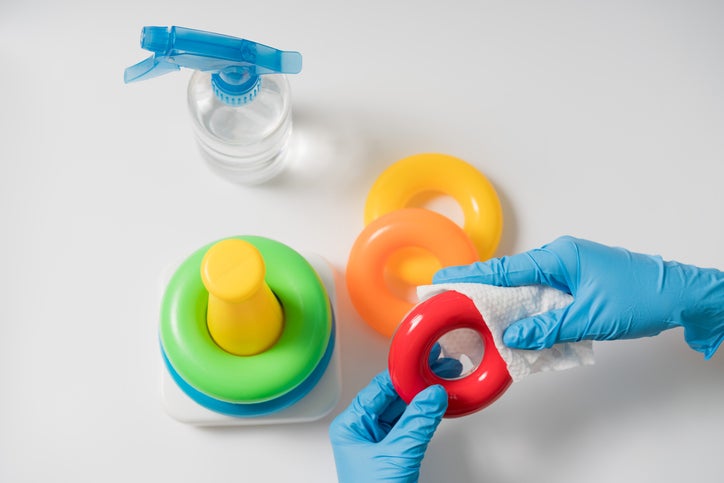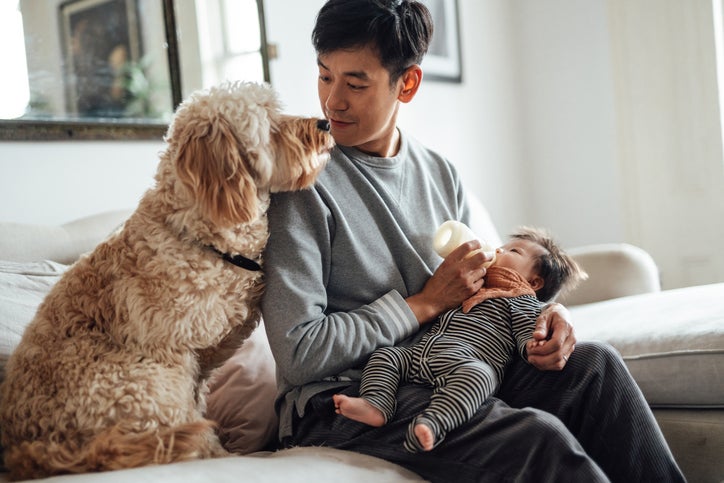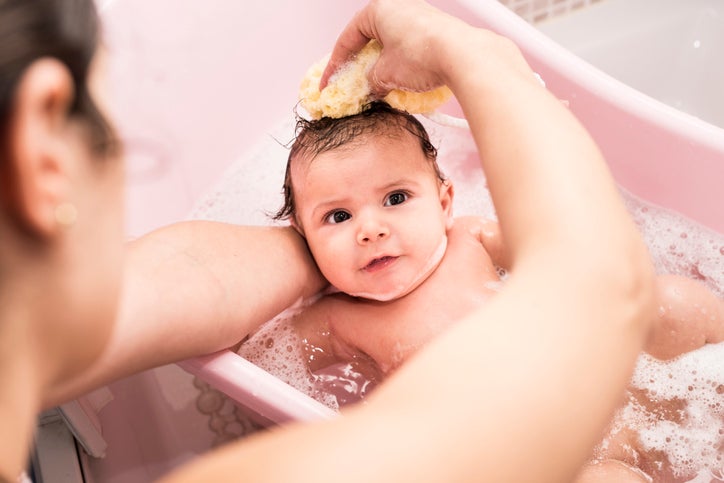Healthy Home: Protecting Your Baby from Germs
Whether you are a first-time parent or an old pro at caring for babies, the rules for keeping your little one healthy are the same.
Do a thorough cleaning prior to bringing your newborn home from the hospital, and continually clean frequently-touched objects (counters, phones, computer keyboards, faucet handles, etc.) to minimize the amount of organisms in the environment.
New clothing that will have contact with infant's skin should be washed prior to wearing because it may have been touched by many people prior to purchase.
Washing Your Hands
It is important to wash your hands frequently, especially after changing a diaper, using the bathroom and before preparing formula, bottle- or breastfeeding your baby. It is also important that the adults caring for your baby are up to date on their vaccinations. This allows a protective circle to be formed around your baby until their immune system is more developed.
Sanitizing Bottles & Toys

If parents are bottle-feeding their baby, they should scrub nipples in hot, soapy water and then rinse thoroughly. Bottles, mixing cups and other equipment used to prepare formula may be cleaned in a dishwasher that uses heated water and has a hot drying cycle, or they can be washed in hot, soapy water and rinsed thoroughly.
If you give your baby a pacifier, either boil or clean it in the dishwasher prior to the first use and frequently thereafter until your baby is six months old. After six months, his/her immune system will be more developed, and cleaning with soap and water will be sufficient.
When cleaning your baby's toys, wash them before your infant plays with them, especially if they've recently been used by a sibling or another child. Disinfectant wipes may also be used and should be allowed to dry for 20 minutes before rinsing the toys with tap water.
Managing Visitors with Illnesses
When it comes to visitors, those who have colds or other respiratory illnesses should not hold your newborn. If they do not have a runny nose, sore throat, or cough, it is ok for them to hold your baby, as long as they wash their hands or use alcohol hand gel prior to holding him/her. If your baby is born during the winter months, limiting visitors is advised due to the prevalence of RSV, colds, and flu.
If you have other children, they should be encouraged to wash their hands frequently and not share their toys with the new baby. If siblings are experiencing colds or other respiratory symptoms, they should not be allowed to kiss or hold the baby until their illness has passed.
Cleaning with Pets

If you have a pet, infants are at increased risk of acquiring diseases from animals because their hands or pacifiers may touch surfaces contaminated with feces.
If a pacifier falls on the floor or is licked by a pet, the pacifier should be washed with soap and hot water or run through a dishwasher using heated water and a hot drying cycle. Parents should wash their hands after touching pets and prior to preparing formula or breastfeeding.
Bathing Baby
Babies only need a bath three times a week if the diaper area is thoroughly cleaned during diaper changes. Bathing a baby too frequently can result in dry, itchy skin, which can allow easier access for germs and make them sick.
